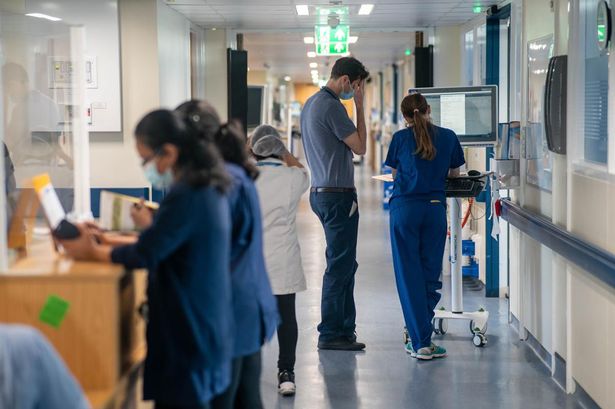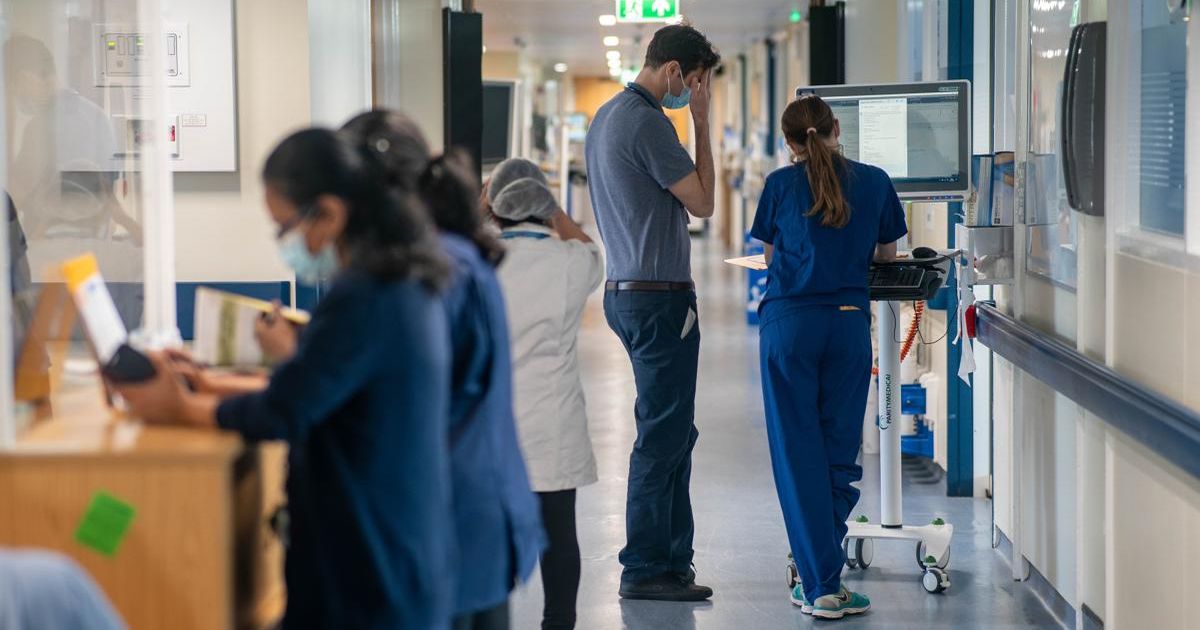MPs say NHS staff are being left in limbo for months while the government has ‘no clear plan for what comes next’ in huge reforms Sir Keir Starmer announced in March that the body responsible for overseeing the health service would be shut down(Image: PA Wire)
Sir Keir Starmer announced in March that the body responsible for overseeing the health service would be shut down(Image: PA Wire)
NHS Greater Manchester’s top boss has warned of ‘tough decisions affecting staff and some services’ amid ‘one of the most challenging periods the NHS has faced’ with ‘significant financial pressures’.
The warning comes after MPs have said patients and staff are being left in limbo as the government has no clear plan after the announcement that it will abolish NHS England, nor how the move will improve faltering frontline care.
Last month, NHS Greater Manchester was told to come up with a plan by the end of May on how it will save £41 million from its running cost budget, which includes money for staff, under the government’s reforms.
Despite the MPs concern about the lack of detail from the government, NHS Greater Manchester is still ‘required to submit an outline plan by the end of May [of how the savings will be achieved]’. That plan will involve a ‘reduced headcount and cost’ from that £106m in running costs.
Mark Fisher, chief executive, NHS Greater Manchester said: “We’re working through one of the most challenging periods the NHS has faced. The financial pressures are significant, and we’re having to make tough decisions that will affect staff and some services.
“Our focus is on protecting core services, supporting our workforce, and making sure people can still access the care they need. We’re determined to protect frontline care, improve access and reduce health inequalities even in challenging times.
“Across Greater Manchester, NHS teams and partners are working together to manage these pressures responsibly and fairly. We’re being open about the tough choices we face, and we’re committed to doing what’s right for the people we serve.”
 Mark Fisher CBE(Image: NHS GM)
Mark Fisher CBE(Image: NHS GM)
Sir Keir Starmer announced in March that the body responsible for overseeing the health service would be shut down, and its functions brought back under the Department of Health and Social Care for the first time in 13 years.
Health Secretary Wes Streeting said that the number of staff employed by NHS England and the Department of Health and Social Care, numbering 15,300 and 3,300 respectively, will be cut by 50 per cent – a cumulative reduction of around 9,000 roles.
But since the government’s declaration, there has been lacking detail. NHS staff have been stranded with an uncertain future for months already, and there is no ‘clear plan for what comes next’ from those in power, says the cross-party group of MPs.
Getting rid of the organisation dubbed ‘the world’s largest quango’ marks an attempt by the government to slash red tape and crack down on ‘wasteful duplication’. The government said a joint board had already started detailed planning.
But this week the Public Accounts Committee, a cross-party group of MPs, said it was concerned about the uncertainty being caused by the upcoming reforms. Committee chair and Tory MP Sir Geoffrey Clifton-Brown urged the government to set out a clear plan within the next three months, saying: “It has been two months since the government’s decision to remove what, up until now, has been seen as a key piece of machinery, without articulating a clear plan for what comes next – and the future for patients and staff remains hazy.”
Alongside the changes at a national level, the 42 regional health boards responsible for planning services are also having to lose around half of their 25,000 staff.
NHS Greater Manchester employs 1,400 staff in the region, including human resources staff, finance workers, IT staff, patient-facing nurses, and many people involved in planning, purchasing and monitoring both care in hospitals and in the community.
A severance and redundancy programme is being considered for thousands of NHS staff around the country. The reductions are understood to likely affect non-clinical roles and management staff away from the frontline.
Greater Manchester health bosses, however, already admitted in April that there has been ‘no detail on a national approach to any redundancies associated with these changes’. Questions loom over how such a programme would be funded, as the total cost of redundancy payouts could reach £1bn.
A Department of Health and Social Care spokesperson said: “Serious reform is needed to tackle the challenges facing the NHS, which is why we are bringing NHS England back into the department – eliminating wasteful duplication and freeing up hundreds of millions for the frontline.
“We’ve always been up front that completing this process is expected to take around two years, but through our Plan for Change we are getting on with the job so people can once again be confident the NHS is there for them when they need it.”
